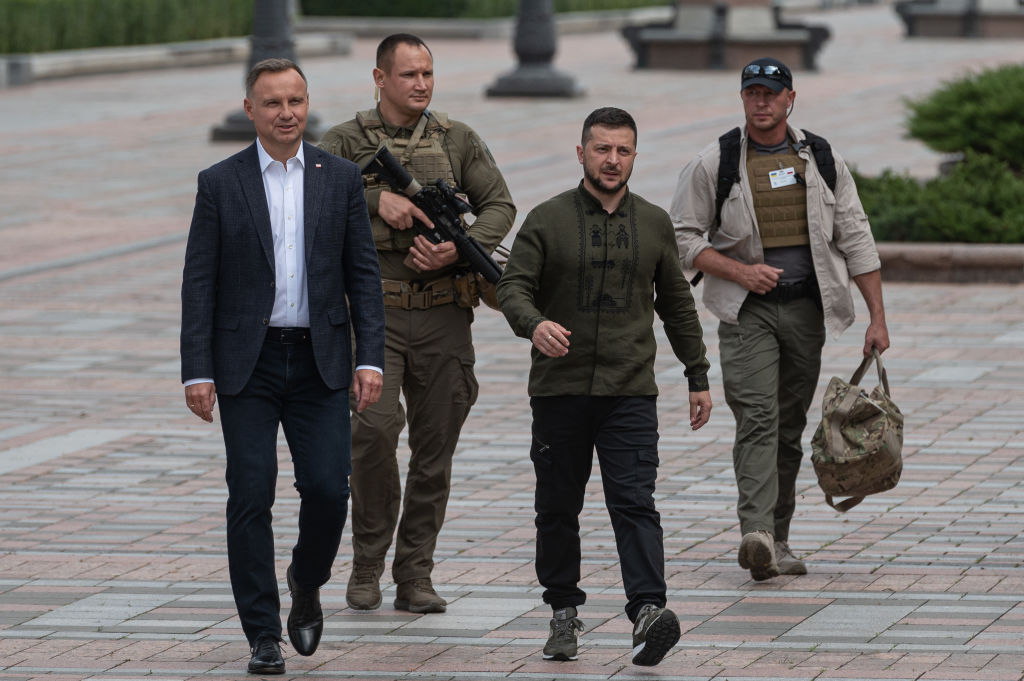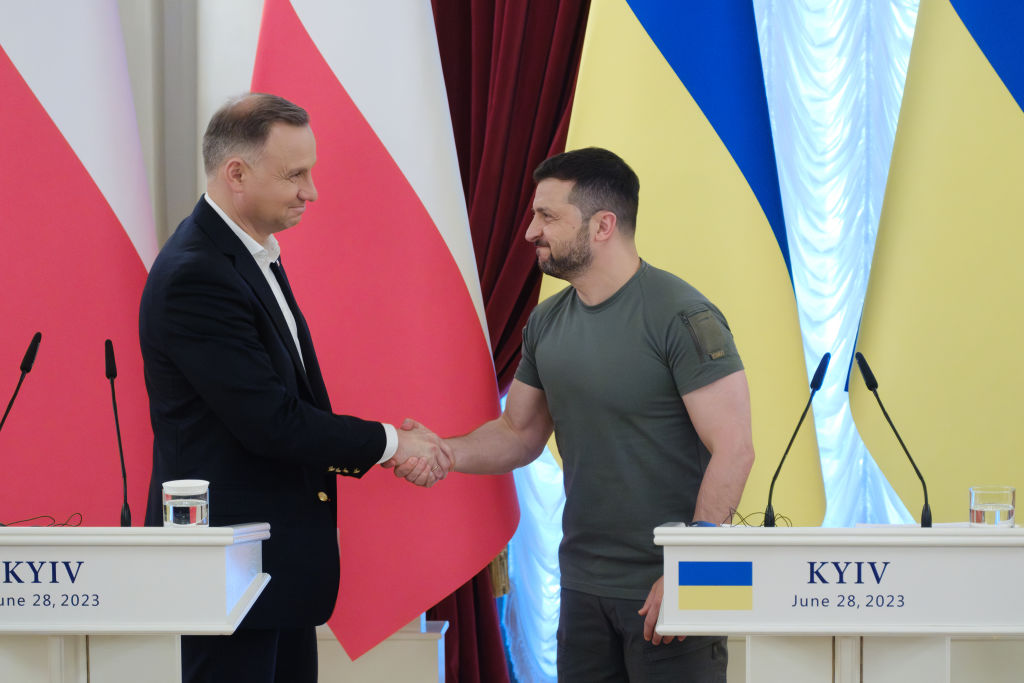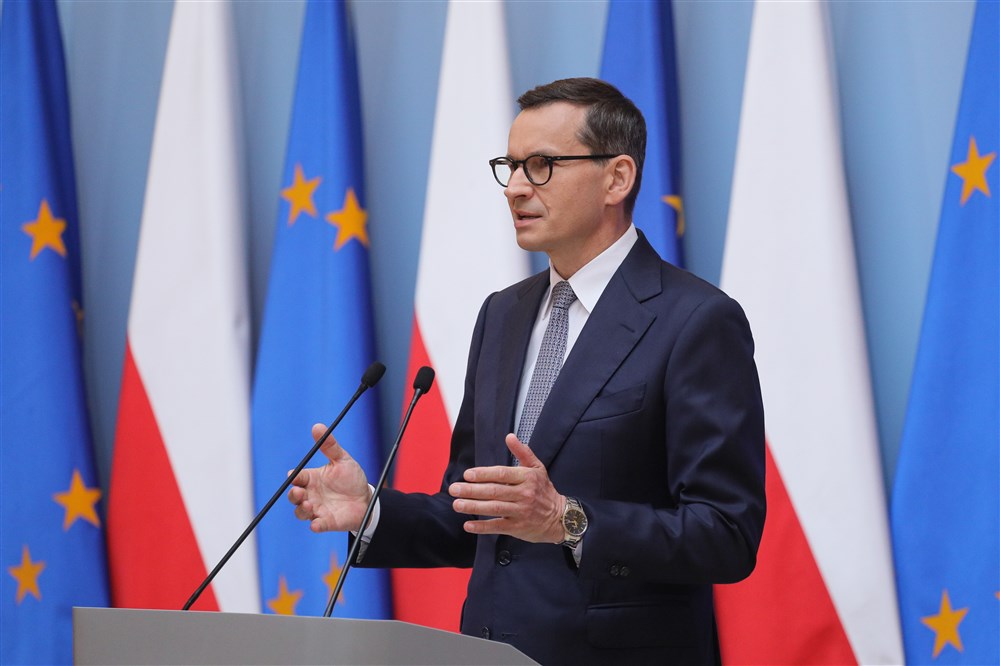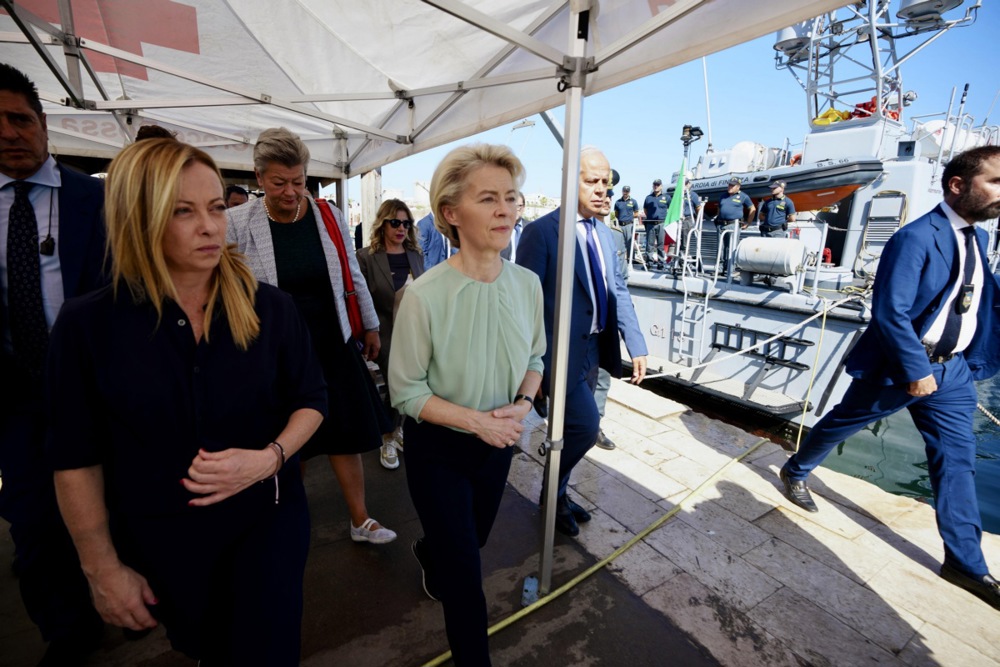The Ukrainian foreign ministry has denied allegations that the country has been persuaded by Germany and France to act against the Polish Government in return for Ukraine’s speedy accession to the European Union.
Oleg Nikolenko, a spokesman for the Ukrainian foreign ministry, said claims made by Polish public television’s (TVP) Brussels correspondent, Dominika Cosic, that Ukraine was willing to help Germany and France bring down the Polish Government constituted “groundless insinuations”.
On 25 September, Cosic wrote on X: “Unofficially it is being said in Brussels that Germany and France have promised to fast-track Ukraine’s accession to the EU if Kyiv assists in bringing down the current Polish Government.
“The justification for this is meant to lie in their assertion that without a change in the EU treaties enlargement is impossible and it is Poland which is blocking such changes.”
In further posts, Cosic said that “Germany and France want to return to business as usual with Russia as soon as possible while increasing their influence and profiting from Ukraine’s reconstruction”.
Speaking for the Ukrainian foreign ministry, Nikolenko’s social media post response was: “The information conveyed has no connection to reality. We categorically reject such insinuations. Ukraine has not been the subject of such ‘offers’. It has no intention of interfering in Polish internal affairs.”
He went on to emphasise Kyiv’s gratitude for Polish assistance and pointed to Ukraine President Volodymyr Zelenskyy’s visit to Lublin in Poland on September 23 where he decorated two Polish volunteers for their war efforts.
His visit did not include any meetings with Polish officials and the authorities there claimed they had no knowledge of it.
Zelenskyy said he also hoped that Poland and Ukraine would not allow anyone to interfere in the relations between the two countries and peoples and called on “our Polish friends to reject all attempts at provoking rancour and sowing disagreement”.
At the UN General Assembly in New York on September 20, Zelensky cancelled his scheduled meeting with Polish President Andrzej Duda. During his speech there he criticised states that have imposed a grain embargo on Ukraine against EU orders, claiming that was an act that assisted Russia.
When asked by journalists to comment on Kyiv’s relations with Poland he would only say: “Ukraine was thankful for the solidarity shown it by the Polish people and let’s leave it there.”
Zelenskyy’s UN speech was called “insulting” by Polish Prime Minister Mateusz Morawiecki, while Duda compared Ukraine to a drowning man whose desperation threatens to take others down with him.
Former Polish president Bronisław Komorowski told commercial TV network Polsat that the Ukrainian President’s remarks and “snubbing” of Polish officials were “extraordinary” and indicative “of Zelenskyy signalling that he wanted a change of government in Warsaw”.
Kyiv’s relations with Germany have improved markedly over the past few months. Berlin is now supplying large amounts of weaponry to Ukraine. At the UN meeting Zelenskyy proposed that Germany should become a permanent member of the UN Security Council.
Former Polish ambassador to Ukraine, Jan Piekło, told Brussels Signal that it was “difficult to understand Zelenskyy’s behaviour in any other way than him having been tempted by promises coming from Berlin”, and that these were likely to have focused on speeding up the process of his country’s accession to the EU.
He also speculated that Germany may have hinted at granting Ukraine supplies of long-range Taurus rockets.
Piekło believes the spat between Ukraine and Poland damages both. “It’s worth asking ourselves who this situation benefits? I cannot see it benefitting Ukraine or Poland. It serves the interests of Russia,” he said.
The big chill in Polish-Ukrainian relations caused by the dispute over the embargo on Ukrainian grain has recently been deepened by Morawiecki saying Poland was no longer sending weapons to Ukraine because it was concentrating on bolstering its own defences.
The mood in Poland with regards to helping Ukraine has changed significantly over the past 12 months. Polls show support for assisting Ukrainians has declined.
Apart from the grain issue, there has also been tension over Ukraine’s refusal to treat the Volhynia massacre of Poles during the Second World War as genocide.
Poland is in the midst of a general election campaign with the vote due to take place on October 15. The ruling conservative PiS is attempting to win an unprecedented third consecutive term in power. It is under pressure on the Right from the Confederation alliance as well as the liberal opposition led by Donald Tusk on the Left.
The tougher political discourse regarding Ukraine seems to have worked for the PiS as ratings for the Confederation have fallen to around 10 per cent from a high of 15 per cent in the summer. The ruling party has also extended its lead in the polls over Tusk and his opposition allies to around 10 per cent.





